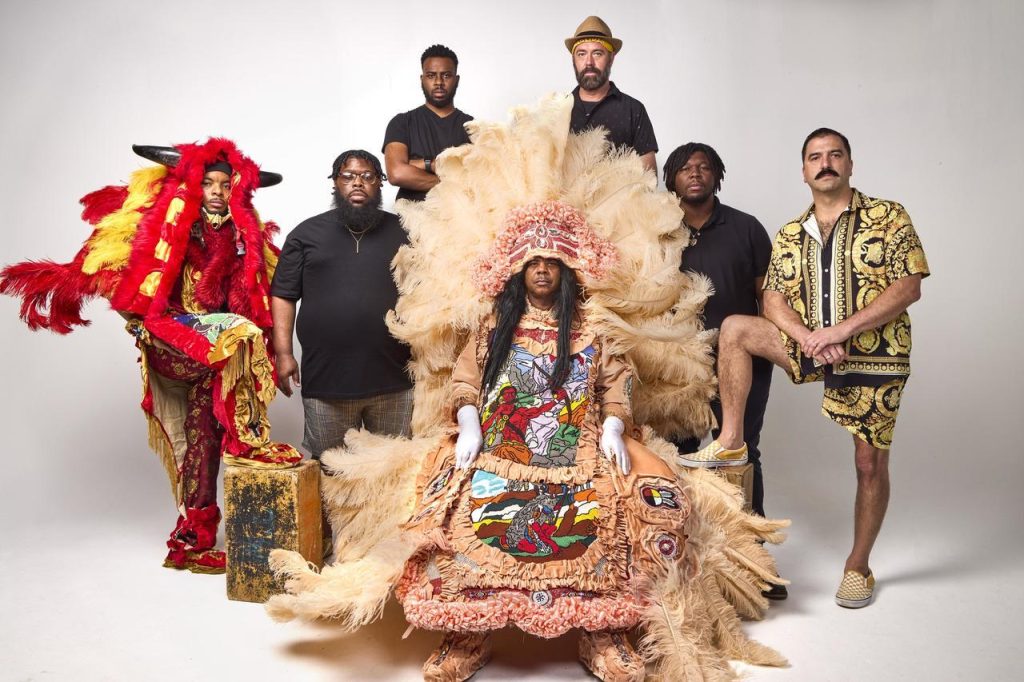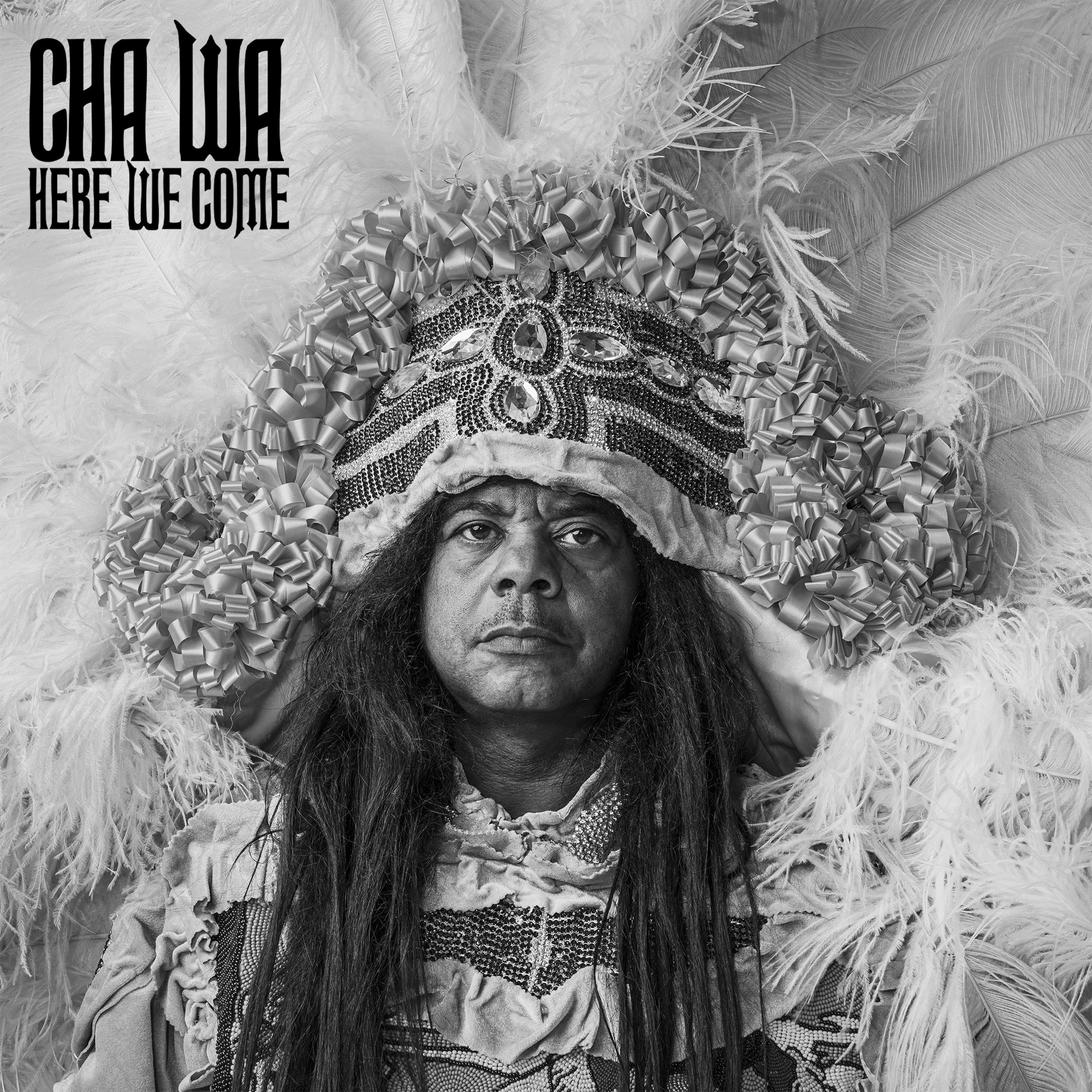How Cha Wa Is Revitalizing American Indigenous Roots Music For New Generations


Grammy-nominated New Orleans-based Cha Wa announces their new album, Rise Up. It arrives like thunder, it's a nostalgic echo and a vital reminder that American roots music remains one of the most potent vehicles for cultural conversation and political expression.
The Afro-Indigenous collective transforms their sound into a contemporary force that speaks directly to the culture's current fractured moment.
Who are Cha Wa, and why does their music matter now?
Cha Wa occupies a singular position in American music. Founded in the rich cultural soil of New Orleans, the band has built its identity around the fusion of Mardi Gras Indian traditions, brass band exuberance, and funk rhythms that course through the city's veins. Their previous album, My People, earned them a Grammy nomination and established them as modern torchbearers of a sound that has historically remained at the margins of mainstream visibility. With Rise Up announced last week through a surprise performance at the New Orleans Jazz & Heritage Festival, Cha Wa positions itself as preservationists and innovators pushing the boundaries of what roots music can accomplish in 2025. Their music recognizes that traditions are living, breathing things that evolve with each generation. We're part of that evolution.

How Generation Z is connecting with roots music traditions
What makes Cha Wa's timing particularly significant is how they've emerged during a surprising resurgence of interest in roots music among younger listeners. Social media platforms have become unexpected vehicles for cultural transmission, with TikTok creators increasingly drawing attention to indigenous and African American musical traditions. The band has embraced this digital terrain without compromising its authentic sound.
What's happening with bands like Cha Wa is a cyclical revival as the emerging generations are recognizing that authenticity doesn't have to be at odds with modern culture. "Cha Wa radiates the kind of energy that makes you want to dance and think at the same time," shares Nate Chinen from NPR Music. "[Albums like] My People is both a tribute and a challenge—a brass-band-powered confrontation with America's past and present."
Cha Wa's traditional sound blends modern activism with traditional sounds
The previous album's title track, which the band previewed on NPR's Tiny Desk Concert series in 2021, combines traditional call-and-response patterns with lyrics that address environmental justice in Louisiana's Cancer Corridor, where predominantly Black communities continue to fight industrial pollution.
The tambourine, often dismissed as a simple rhythmic tool, carries a more profound historical significance in Cha Wa's music. For generations, it was one of the only instruments permitted to enslaved African Americans. It transformed into a vital medium of cultural preservation and nonverbal resistance. In Cha Wa's hands, that legacy is honoured and activated as their music becomes a conduit for ancestral memory and communal strength. It blends celebration with defiance at a time when much of popular music remains apolitical.
-Cha Wa's band statement highlighting their collective creative process and commitment to honouring tradition while innovating
Will roots music find its place in modern music culture?
As Rise Up debuts its June release, questions remain about how deeply its impact will penetrate beyond devoted followers of American roots music. Major streaming platforms continue to prioritize pop, hip-hop, and algorithm-friendly productions, often relegating cultural traditions to specialized playlists with limited visibility.
Yet something undeniable is stirring. In the wake of global protests and a pandemic that forced us to reconsider our connections, audiences seem increasingly drawn to music that offers both cultural depth and communal celebration. Cha Wa's rising prominence—alongside similar momentum for artists like Our Native Daughters, Jake Blount, and Ranky Tanky—suggests a collective hunger for sounds that ground us in something more substantial than fleeting trends.
The actual test for Cha Wa and Rise Up won't be measured in streaming numbers or year-end lists, but in how effectively they bridge past and present, creating space for traditions once marginalized to become central to conversations about American musical identity. Less quantitatively measurable, but the impact is clear. In their hands, the tambourine transforms into an instrument and a portal between generations, cultures, and the past and the future of music.
Cha Wa's Rise Up Tracklist:
Here We Come
Music Is My Medicine
Why You Wanna Do Me Like That
Elijah Rock
Freedom Of The City
Heavy Is The Head
Fallen Soldiers
Hear The Sound
Revival
Rise Up
Won’t Bow Down
Cha Wa's Tour Dates:
July 24 – Floyd, VA – FloydFest
July 26 – Macon, GA – Bragg Jam Concert Crawl
July 30 – Reno, NV – Artown 2025
July 31 – Phoenix, AZ – Musical Instrument Museum
August 3 – Kaslo, BC – Kaslo Jazz Festival
For more information, visit here.